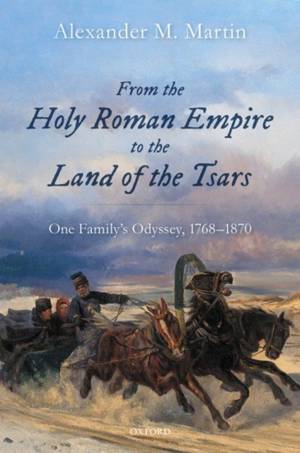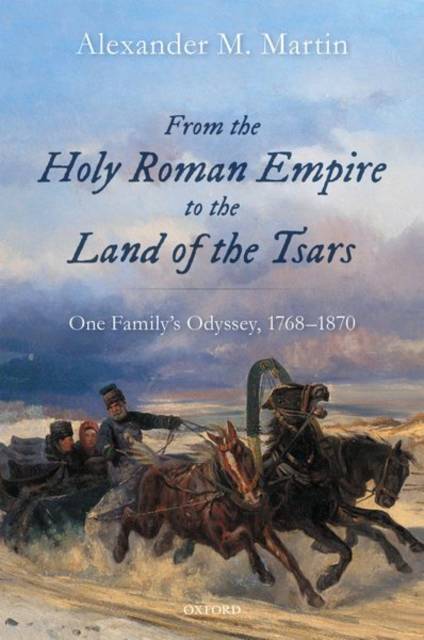
- Retrait gratuit dans votre magasin Club
- 7.000.000 titres dans notre catalogue
- Payer en toute sécurité
- Toujours un magasin près de chez vous
- Retrait gratuit dans votre magasin Club
- 7.000.0000 titres dans notre catalogue
- Payer en toute sécurité
- Toujours un magasin près de chez vous
From the Holy Roman Empire to the Land of the Tsars
One Family's Odyssey, 1768-1870
Alexander M Martin
217,95 €
+ 435 points
Description
In a manuscript in a Russian archive, an anonymous German eyewitness describes what he saw in Moscow during Napoleon's Russian campaign. Who was this nameless memoirist, and what brought him to Moscow in 1812? The search for answers to those questions uncovers a remarkable story of German and Russian life at the dawn of the modern age. Johannes Ambrosius Rosenstrauch (1768-1835), the manuscript's author, was a man always on the move and reinventing himself. He spent half his life in the Holy Roman Empire, and the other half in Russia. He was a barber-surgeon, an actor, and a merchant, as well as a Catholic, a Freemason, and a Lutheran pastor. He saw the French Revolutionary and Napoleonic Wars, founded a business that flourished for sixty years, and took part in the Enlightenment, the consumer revolution, the Pietist Awakening, and Russia's colonization of the Black Sea steppe. A restless wanderer and seeker, but also the progenitor of an influential merchant family, he was a characteristic figure both of the Age of Revolution and of the bourgeois era that followed. Presenting a broad panorama of life in the German lands and Russia from the Old Regime to modernity, this microhistory explores how individual people shape, and are shaped by, the historical forces of their time.
Spécifications
Parties prenantes
- Auteur(s) :
- Editeur:
Contenu
- Nombre de pages :
- 416
- Langue:
- Anglais
- Collection :
Caractéristiques
- EAN:
- 9780192844378
- Date de parution :
- 03-06-22
- Format:
- Livre relié
- Format numérique:
- Genaaid
- Dimensions :
- 163 mm x 241 mm
- Poids :
- 780 g

Les avis
Nous publions uniquement les avis qui respectent les conditions requises. Consultez nos conditions pour les avis.






